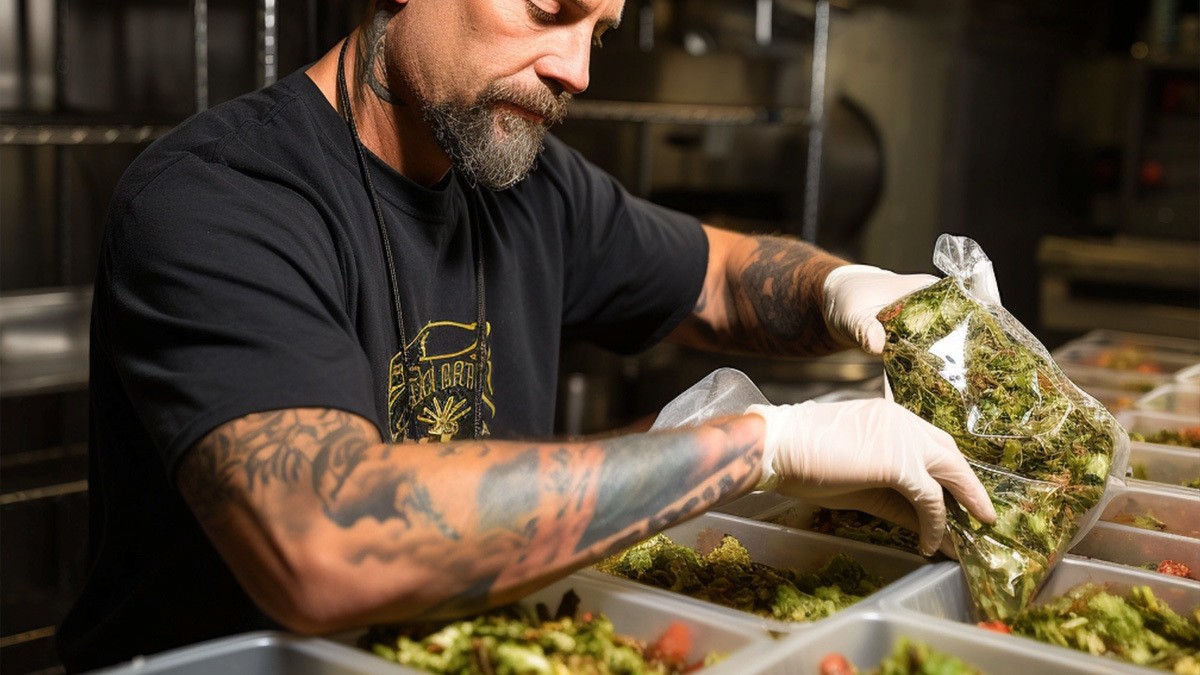
We explore how Arkansas’ thriving medical marijuana program is making a significant impact on food insecurity efforts across the state, offering hope and relief to countless residents in need.
The Milestone Achievement
The recent news from Arkansas is nothing short of remarkable. The state’s medical marijuana program has reached a staggering milestone of one billion dollars in sales. This achievement reflects not only the program’s economic success but also its potential for addressing pressing social issues, such as food insecurity.
A Unique Collaboration
Behind this success lies a unique collaboration between Arkansas’ medical marijuana program and food insecurity initiatives. According to Scott Hardin, spokesperson for the Arkansas Medical Marijuana Commission, a portion of the revenue generated from medical marijuana sales is directed towards addressing food insecurity in the state.
The Impact on Food Insecurity
Food insecurity, a pervasive issue that affects millions of Americans, is a complex problem with no easy solutions. However, the infusion of funds from Arkansas’ medical marijuana program is providing much-needed relief to the state’s most vulnerable populations.
1. Expanded Access to Nutritious Meals: The funds generated from medical marijuana sales are channeled into programs that expand access to nutritious meals for low-income individuals and families. This financial support allows food banks and charitable organizations to purchase fresh produce, proteins, and other essential food items.
2. Support for Local Agriculture: Arkansas has a rich tradition of agriculture, and the partnership between the medical marijuana program and food insecurity efforts also benefits local farmers. By purchasing food locally, this initiative strengthens the state’s agricultural sector, creating a win-win scenario for both growers and consumers.
3. Improved Health and Well-being: Adequate nutrition is a fundamental building block of good health. By addressing food insecurity, the state not only alleviates hunger but also improves the overall well-being of its residents. This, in turn, reduces healthcare costs and enhances the quality of life for many Arkansans.
National Recognition and the Role of Tax Profits
Arkansas’ innovative approach to addressing food insecurity has garnered national attention. The success of this collaboration has demonstrated that unconventional partnerships can lead to meaningful solutions for deeply entrenched social problems.
One key factor contributing to the program’s success is the significant tax revenue generated by medical marijuana sales. A portion of these tax profits is strategically allocated to fund food insecurity initiatives. This approach not only bolsters food assistance programs but also highlights the potential for tax revenue from the broader cannabis industry to support a range of critical social services.
A Glimpse into the Future: Recreational Dispensaries
As Arkansas continues to blaze a trail in the realm of medical marijuana, the possibility of legalizing recreational marijuana in the state is on the horizon. While discussions are ongoing, the potential expansion of dispensaries to serve recreational users raises intriguing possibilities for the state’s financial and social landscape.
1. Additional Revenue Streams: Recreational dispensaries, if legalized, would likely contribute significantly to the state’s revenue. By directing a portion of these profits toward food insecurity and other social programs, Arkansas could further solidify its commitment to addressing critical issues.
2. Comprehensive Social Impact: Beyond food insecurity, the additional revenue generated by recreational dispensaries could support a wide range of social initiatives, including education, healthcare, and substance abuse treatment.
3. Regulatory Considerations: The legalization of recreational marijuana would necessitate careful regulation to ensure responsible use and protect public health. Lessons learned from the medical marijuana program can inform effective regulatory frameworks.
A Model to Follow
Arkansas’ medical marijuana program has not only achieved remarkable financial success but has also become a beacon of hope for addressing food insecurity and other pressing social issues. The collaboration between the cannabis industry and food assistance initiatives showcases the potential for innovative solutions to deeply entrenched problems.
As discussions about the potential legalization of recreational marijuana continue, it is crucial for the state to consider the broader social impact and allocate resources wisely. The billion-dollar achievement in medical marijuana sales serves as a testament to the power of collaboration and innovative thinking in addressing the needs of vulnerable populations, ultimately making Arkansas a leader in cannabis policy with a heart for its citizens.
MERRY JANE Staff via (https://merryjane.com/news/billion-dollar-partners-arkansas-medical-cannabis-sales-tackles-food-insecurity)
Keep out of reach of children. For use only by adults 21 years of age and older.
